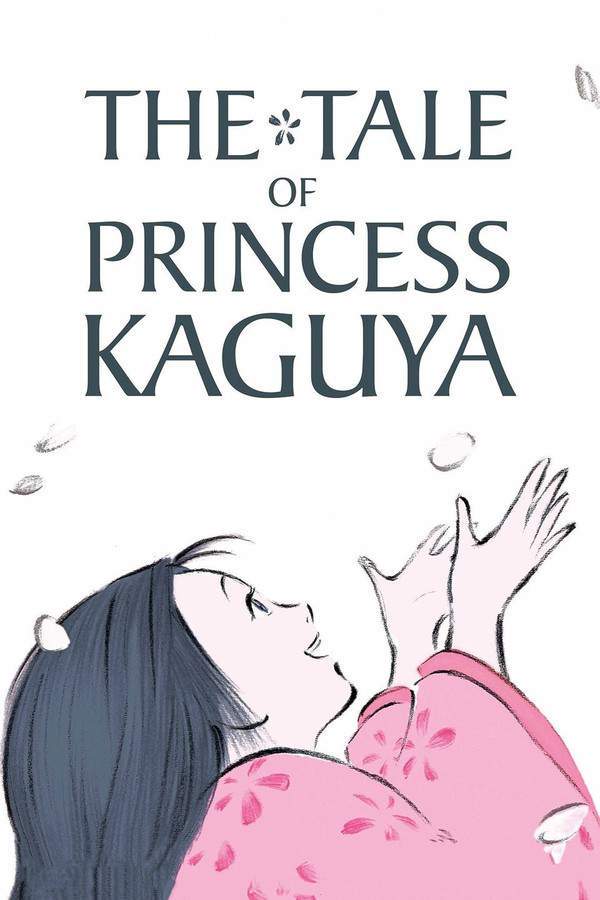The Tale of The Princess Kaguya 2014

A bamboo cutter discovers a tiny girl inside a bamboo stalk, and he and his wife raise her as their own. She rapidly grows into a beautiful and captivating young woman, attracting the attention of many suitors. However, her extraordinary growth and the lavish lifestyle she’s led draw her into a world of political intrigue and societal pressures, ultimately challenging her sense of self and her freedom to choose her own path.
Does The Tale of The Princess Kaguya have end credit scenes?
No!
The Tale of The Princess Kaguya does not have end credit scenes. You can leave when the credits roll.
Meet the Full Cast and Actors of The Tale of The Princess Kaguya
Explore the complete cast of The Tale of The Princess Kaguya, including both lead and supporting actors. Learn who plays each character, discover their past roles and achievements, and find out what makes this ensemble cast stand out in the world of film and television.

Mary Steenburgen

James Marsden

Chloë Grace Moretz

James Caan

Nobuko Miyamoto

Kengo Kôra

Tomoko Tabata

Isao Hashizume

Takeo Chii

Aki Asakura

Atsuko Takahata

Shinosuke Tatekawa

Takaya Kamikawa

Hikaru Ijûin

Ryûdô Uzaki

Shichinosuke Nakamura

Mirai Uchida

Fubomichi Takazawa

Reigo Mizoguchi

Kawashiro Hidenosuke
External Links and Streaming Options
Discover where to watch The Tale of The Princess Kaguya online, including streaming platforms, rental options, and official sources. Compare reviews, ratings, and in-depth movie information across sites like IMDb, TMDb, Wikipedia or Rotten Tomatoes.
Ratings and Reviews for The Tale of The Princess Kaguya
See how The Tale of The Princess Kaguya is rated across major platforms like IMDb, Metacritic, and TMDb. Compare audience scores and critic reviews to understand where The Tale of The Princess Kaguya stands among top-rated movies in its genre.

89
Metascore
8.5
User Score

81
%
User Score

4.3
From 8.3K fan ratings

5.00/5
From 1 fan rating
Take the Ultimate The Tale of The Princess Kaguya Movie Quiz
Challenge your knowledge of The Tale of The Princess Kaguya with this fun and interactive movie quiz. Test yourself on key plot points, iconic characters, hidden details, and memorable moments to see how well you really know the film.
The Tale of The Princess Kaguya Quiz: Test your knowledge on the enchanting story of Princess Kaguya and her journey from the moon to Earth.
What was the name of the maiden discovered by the bamboo cutter?
Princess Kaguya
Takenoko
Sutemaru
Bamboo Maiden
Show hint
Full Plot Summary and Ending Explained for The Tale of The Princess Kaguya
Read the complete plot summary of The Tale of The Princess Kaguya, including all major events, twists, and the full ending explained in detail. Explore key characters, themes, hidden meanings, and everything you need to understand the story from beginning to end.
As the bamboo cutter discovered a radiant bamboo shoot, this pivotal moment sparked a series of events that would dramatically change their lives forever. Within this glowing miracle, they found a tiny maiden, whom they lovingly named Princess. As she grew up, the villagers affectionately called her Takenoko, a name that perfectly captured her astonishing growth and vivacious spirit. Among her closest friends was Sutemaru, a gentle and kind-hearted boy who formed a profound bond with her.
The bamboo cutter later unearthed treasures such as gold and fine fabrics in the bamboo grove, evidence of Princess’s celestial heritage. Inspired by these findings, he devised an elaborate plan to elevate her social status. With a heavy heart and a sense of duty, he moved the family from their simple life in the countryside to the opulent capital. Their once modest home was transformed into a grand mansion filled with servants and extravagant luxuries. To mold her into a refined lady, a strict governess was brought in, but the transition proved challenging for the girl, who found it difficult to reconcile her new, opulent surroundings with her humble beginnings.
As Princess Kaguya—her elegant name bestowed upon her at adulthood—navigated this alien world, she sought comfort in the presence of Sutemaru and her group of friends. However, when the truth about her origins surfaced, desperation drove her to flee the capital, longing for the familiar landscapes of her childhood. Unfortunately, upon her return, she found that her friends had moved on, leaving her feeling abandoned and adrift.
With the passage of time, a newfound beauty illuminated Princess Kaguya, attracting admirers from distant lands. Five noble suitors attempted to win her heart, likening her beauty to the treasures of ancient myths. Yet, she remained elusive, declaring that only one who could retrieve her coveted prize would gain her affection.
When spring blossomed, Princess Kaguya longed to witness the cherry blossoms in their full splendor. Accompanied by her mother and a loyal handmaiden, she returned to the countryside to see a magnificent tree near her old home. As she twirled joyfully amid the delicate petals, her happiness was abruptly interrupted when she encountered an innocent child. The family’s heartfelt apology and swift departure served as a poignant reminder of the responsibilities tied to her noble new identity.
As the royal carriage drew near to the capital, a sudden uproar outside caught Kaguya’s attention. Her quick instincts recognized Sutemaru amid the chaos, as he was caught stealing a chicken. Incensed, she leapt from the carriage, only to retreat in horror as reality struck. The would-be thief faced a vicious beating from pursuers, his cries ringing out through the streets.
After this turmoil, four suitors endeavored to win her heart, each presenting a token—be it a phony gift, a bouquet, or a collection of treasures. Yet, only one suitor, the fourth, displayed genuine kindness, gifting her a bloom instead of something far more valuable. Tragically, this noble gesture was thwarted when his wife intervened before Kaguya could even respond.
These repeated rejections deeply impacted Kaguya, leading her into a profound melancholy. At her lowest point, the Emperor of Japan, intrigued by her otherworldly beauty, set his sights on abducting her. Kaguya, however, expertly turned the tables on him, begging him to desist as she revealed her true essence.
As secrets unfurled, Kaguya openly shared with her parents her extraordinary past: she was originally from the Moon, having violated its laws in her longing for mortal experiences on Earth. When the Emperor’s relentless pursuit became unbearable, she silently sought the Moon’s help, leading to the restoration of her memories and a promise of reclamation at the next full moon.
Torn between her affection for Earth and the call of the Moon, Kaguya expressed a heartfelt attachment to her life here, which moved her father to take a stand, pledging to protect her by fortifying their mansion into an impregnable fortress.
Amid these challenges, Kaguya returned to her childhood village and stumbled upon Sutemaru again, rekindling their love amidst a whirlwind of joy and fervor. As they reveled in their happiness while soaring above the landscapes, their bliss was fleeting as they encountered a divine procession from the Moon, led by the Buddha. The fortress’s strength, once thought unbeatable, crumbled under this celestial onslaught.
As night descended on the eve of the full moon, a servant presented Kaguya with a sacred garment that would erase all her memories of Earth. With tears streaming down her cheeks, she bid an emotional farewell to her family and friends, embracing them one last time before being enveloped by the robe. With heavy hearts, the bamboo cutter and his wife were left to mourn their loss.
As Kaguya turned back to cast her gaze upon the distant Earth, her eyes brimmed with tears—a striking representation of her bittersweet goodbye to the world she had come to love.
Uncover the Details: Timeline, Characters, Themes, and Beyond!

Coming soon on iOS and Android
The Plot Explained Mobile App
From blockbusters to hidden gems — dive into movie stories anytime, anywhere. Save your favorites, discover plots faster, and never miss a twist again.
Sign up to be the first to know when we launch. Your email stays private — always.
Watch Trailers, Clips & Behind-the-Scenes for The Tale of The Princess Kaguya
Watch official trailers, exclusive clips, cast interviews, and behind-the-scenes footage from The Tale of The Princess Kaguya. Dive deeper into the making of the film, its standout moments, and key production insights.
The Tale of The Princess Kaguya Other Names and Titles
Explore the various alternative titles, translations, and other names used for The Tale of The Princess Kaguya across different regions and languages. Understand how the film is marketed and recognized worldwide.
Quick Links: Summary, Cast, Ratings, More

What's After the Movie?
Not sure whether to stay after the credits? Find out!
Explore Our Movie Platform
New Movie Releases (2026)
Famous Movie Actors
Top Film Production Studios
Movie Plot Summaries & Endings
Major Movie Awards & Winners
Best Concert Films & Music Documentaries
Movie Collections and Curated Lists
© 2026 What's After the Movie. All rights reserved.

















